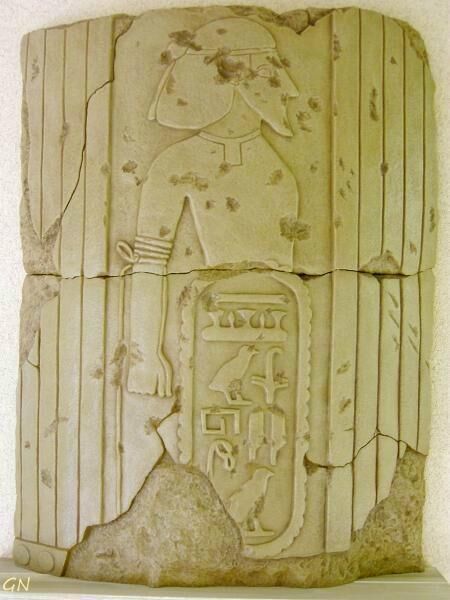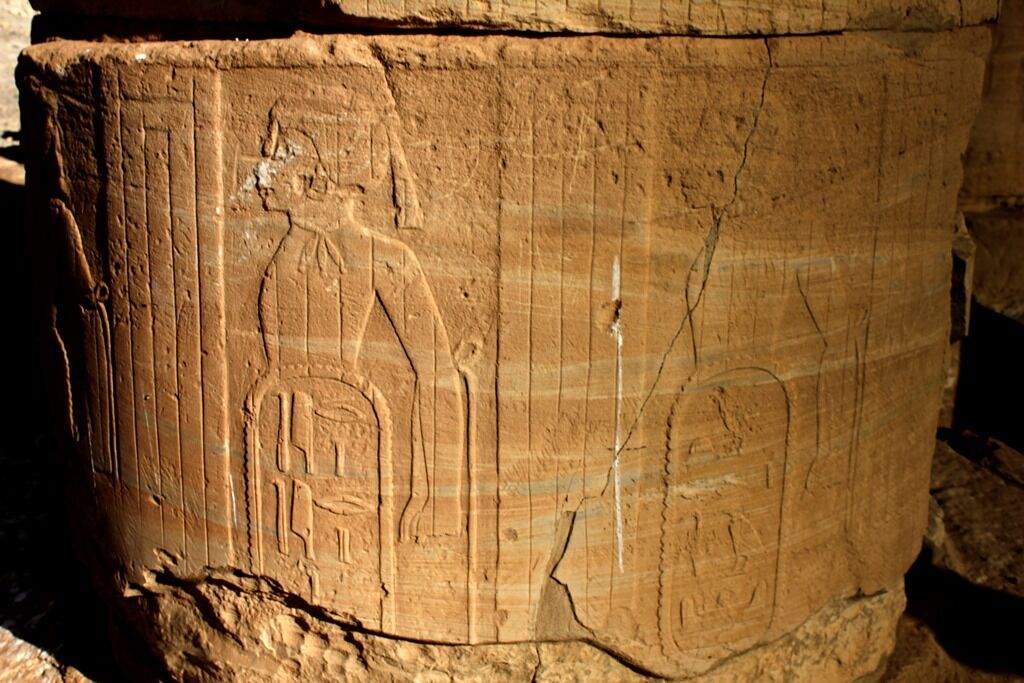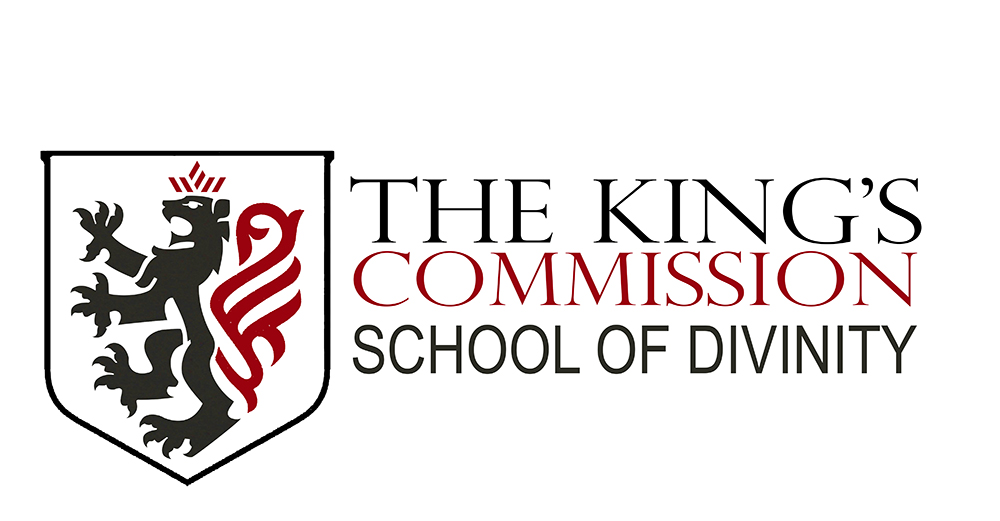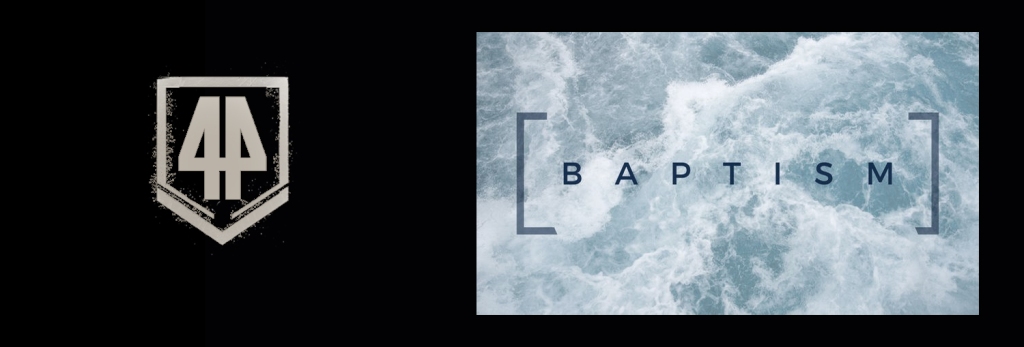Introduction
The wilderness traditions of Moses are often read as a story of isolation—forty years in obscurity before the divine call. Yet the biblical text itself refuses such a solitary picture. Moses’ exile in Midian is embedded in a network of kinship, priesthood, and tribal alliances centered on a people known as the Kenites. Their presence lingers quietly but persistently throughout the Pentateuch and into the historical books, raising a question that has become increasingly difficult to ignore: to what extent did Israel’s earliest encounter with Yahweh occur within the social and religious world of the Kenites and Midianites?
The purpose of this study is not to advance a simplistic version of the so-called “Kenite hypothesis,” nor to diminish the distinctiveness of Israel’s covenantal revelation, but to situate Moses’ wilderness experience within its Ancient Near Eastern (ANE) social and religious environment. When this context is taken seriously—together with the linguistic texture of the Hebrew text and the witness of extra-biblical sources—a more textured portrait emerges: Moses as a liminal figure formed at the intersection of Egyptian royal culture and Kenite priestly wilderness tradition, and Israel as a people whose earliest articulation of Yahweh-faith was shaped, at least in part, within that southern world.

Exile, Marriage, and Covenant Incorporation
The narrative of Exodus 2 presents Moses as a fugitive who finds refuge in Midian, where he is welcomed into the household of a priestly figure identified variously as Reuel, Jethro, or Hobab. The text’s multiplicity of names has generated no small amount of discussion, but before turning to those issues it is worth observing the basic social structure at work. In the ANE, asylum was rarely granted to unattached individuals; it was secured through incorporation into a household or clan, often by marriage. Moses’ union with Zipporah therefore functions as a covenantal incorporation into a priestly lineage rather than a mere romantic development. His naming of his son Gershom—“I have been a sojourner there”—captures the liminal legal status of a ger, a resident alien under the protection of a host clan.¹
Such arrangements are well attested in comparative ANE materials, where kinship terminology often serves as a vehicle for treaty relationships. The language of “father,” “brother,” and “son” in Hittite and Mari texts frequently marks political alliance rather than strict biological descent.² Within this framework, Moses’ relationship to Jethro/Hobab should be read not only as familial but also as covenantal and diplomatic, binding Moses—and eventually Israel—to a southern nomadic network.
Kenite and Midianite: Layers of Identity in the Southern Levant
The biblical tradition terminology alternates between describing Moses’ in-laws as Midianites (Exod 3:1; Num 10:29) and as Kenites (Judg 1:16; 4:11). Rather than forcing a rigid distinction, most modern scholarship understands these terms as overlapping identity markers. The Kenites appear to have been a clan or subgroup associated with the broader Midianite confederation, inhabiting the Negev and the Transjordanian south.³
Such fluidity is characteristic of nomadic and semi-nomadic societies in the Late Bronze and Iron Age Levant, where tribal identity was multi-layered—geographical, genealogical, and occupational. Egyptian New Kingdom texts refer to nomadic groups called the Shasu, some of whom are designated “Shasu of Yhw,” locating a group bearing the divine name Yhw in precisely the southern region (Edom/Midian) associated with the Kenites.⁴ While the precise relationship between these Shasu groups and the biblical Kenites remains debated, the geographic convergence is striking and provides a plausible extra-biblical backdrop for early Yahwistic devotion in the south.
Genealogy, Language, and the Problem of “Father-in-Law”
The identity of Moses’ father-in-law is further complicated by the Hebrew terminology itself. The consonantal Hebrew root חתן (ḥtn) is semantically flexible and can denote a range of affinal relationships—“father-in-law,” “son-in-law,” or more broadly “in-law/relative by marriage.” The distinction between ḥōtēn (traditionally “father-in-law”) and ḥātān (“bridegroom/son-in-law”) is supplied by later vocalization and is not present in the earliest consonantal text. This ambiguity is not merely theoretical; it directly affects how we read several key passages.
For example, Exodus 3:1 introduces Jethro as:
“Moses was keeping the flock of Jethro his ḥōtēn, the priest of Midian.”
Here the Masoretic pointing reads ḥōtēn (“father-in-law”), but the consonantal text permits the broader sense “relative by marriage.” The same form appears again in Exodus 4:18 and Exodus 18:1, where Jethro is consistently identified as Moses’ ḥōtēn.
However, Numbers 10:29 complicates matters. There we read:
“Moses said to Hobab son of Reuel the Midianite, Moses’ ḥōtēn…”
If the Masoretic pointing is followed, Hobab is identified as Moses’ father-in-law, yet Exodus 2:18 and 3:1 have already identified Reuel/Jethro in that role. The simplest resolution—recognized by many modern commentators—is that the underlying consonantal term here may refer more broadly to an affinal relation, allowing Hobab to be understood as Moses’ brother-in-law (i.e., Zipporah’s brother) rather than his father-in-law.¹
The ambiguity is compounded in Judges 4:11, where Hobab is again called:
“Hobab the Kenite, the ḥōtēn of Moses…”
Here the term again appears, and once more the precise relationship depends on whether one insists on the narrow sense “father-in-law” or allows the wider semantic range “in-law/kinsman by marriage.”
These overlapping identifications—Jethro/Reuel as ḥōtēn (Exod 3:1; 18:1) and Hobab as ḥōtēn (Num 10:29; Judg 4:11)—are not best resolved by forcing a contradiction, but by recognizing that the Hebrew root חתן functions as a kinship term within a covenantal framework, not a strictly biological descriptor in the modern sense.
This broader usage is consistent with wider ANE patterns in which kinship language regularly functions in diplomatic and covenantal contexts. In treaty texts from Mari, Alalakh, and Hatti, terms such as “father,” “brother,” and “son” are used to express political alliance, loyalty, and obligation rather than literal descent.² Within such a conceptual world, to call Jethro or Hobab Moses’ ḥtn is to locate them within a network of covenantal kinship obligations created through marriage and alliance.
This helps explain why the Kenites are later treated as permanent covenant allies of Israel. In Judges 1:16, the “descendants of the Kenite, Moses’ ḥōtēn,” accompany Judah into the Negev, and in 1 Samuel 15:6 Saul spares the Kenites explicitly “because you showed kindness to all the people of Israel when they came up out of Egypt.” The language of “kindness” (ḥesed) in that context carries covenantal overtones, suggesting that the earlier affinal bond had matured into a recognized inter-tribal covenant relationship.
Accordingly, the genealogical language surrounding Moses’ in-laws should not be read narrowly as an attempt to preserve precise biological lineage. Rather, it signals the formation of a durable covenantal bond between Moses’ household and a southern priestly clan—one that is remembered and honored in Israel’s later historical traditions.
“You Shall Be Our Eyes”: Wilderness Knowledge and Israel’s Dependence
The practical dimension of this relationship surfaces explicitly in Numbers 10:29–32, where Moses entreats Hobab to accompany Israel through the wilderness: “You shall be our eyes.” This is not rhetorical flourish. Survival in the Sinai and Negev required intimate knowledge of water sources, seasonal grazing patterns, and safe routes through contested tribal territories. Archaeological and ethnographic studies of pastoral nomadism confirm that such knowledge was typically preserved within specific clans and transmitted across generations.⁶
The Kenites, therefore, were not incidental companions but indispensable guides whose expertise enabled Israel’s passage. Their later settlement alongside Judah (Judg 1:16) and their protection in Saul’s campaign against Amalek (1 Sam 15:6) attest to a long-standing covenantal relationship rooted in this wilderness partnership.
Jethro the Priest and the Question of Early Yahwism
Perhaps the most theologically significant dimension of the Kenite connection emerges in Exodus 18. Jethro is introduced explicitly as a “priest of Midian” (כֹּהֵן מִדְיָן, kōhēn Midyān), yet his actions throughout the narrative suggest that his priesthood is not merely generic or polytheistic in orientation. Upon hearing of Israel’s deliverance, Jethro blesses Yahweh by name:
“Blessed be Yahweh, who has delivered you… Now I know that Yahweh is greater than all the gods” (Exod 18:10–11).
He then offers burnt offerings and sacrifices to Yahweh, and presides over a covenantal meal in which Aaron and the elders of Israel participate before God (Exod 18:12). Significantly, the narrative does not present Jethro as undergoing conversion or instruction in Yahweh worship. Rather, he appears as a recognized priestly mediator who already possesses knowledge of Yahweh and responds to His acts with liturgical competence and theological clarity.
This observation has led many scholars to reconsider the geographical and cultural origins of Yahwistic devotion, particularly in light of poetic biblical traditions that consistently associate Yahweh’s earliest manifestation with the southern regions of Edom, Seir, Paran, and Teman:
- “Yahweh came from Sinai, and dawned from Seir upon us; he shone forth from Mount Paran” (Deut 33:2)
- “O Yahweh, when you went out from Seir… the earth trembled” (Judg 5:4–5)
- “God came from Teman, and the Holy One from Mount Paran” (Hab 3:3)
These texts do not depict Yahweh as emerging from the land of Canaan or the Nile Delta, but rather from the southern wilderness zone stretching from Edom into northwest Arabia, precisely the region associated with Midianite and Kenite groups.
The “Shasu of Yhw” in Egyptian Texts
This southern localization finds intriguing resonance in Egyptian New Kingdom inscriptions that reference nomadic peoples known as the Shasu (šꜣsw), a term used broadly for semi-nomadic pastoralists inhabiting the Transjordan, Negev, and southern Levant.
In inscriptions from the reigns of Amenhotep III (14th century BCE) and later Ramesses II, Egyptian topographical lists mention a group designated as:
“tꜣ šꜣsw yhwꜣ” — “the land of the Shasu of Yhw”
These inscriptions are preserved in temple reliefs at Soleb and Amarah-West in Nubia.¹ The toponym Yhw (often vocalized Yahu or Yahweh) is widely regarded by many scholars as the earliest extra-biblical reference to the divine name Yahweh, associated not with settled Canaanite city-states but with nomadic groups in the southern Transjordan/Edom region.²
While the precise phonetic equivalence between Yhw and the tetragrammaton (YHWH) cannot be proven with absolute certainty, the convergence of:
- the geographic location (Edom/Midian region),
- the nomadic tribal context (Shasu pastoralists), and
- the phonetic similarity to Yahweh
has led many historians of religion (e.g., Cross, Albright, Smith) to regard the Shasu references as highly suggestive evidence for a southern origin or early center of Yahweh devotion.


Soleb Temple cartouche referring to tꜣ šꜣsw yhwꜣ (“the land of the Shasu of Yhw”), reign of Amenhotep III (14th century BCE), Nubia (modern Sudan). The inscription appears within a topographical list of foreign peoples, represented as bound captives and labeled with their territorial or tribal names.
Midian, Kenites, and the Transmission of Yahwism
When the biblical data and Egyptian inscriptions are read together, a coherent historical-theological picture begins to emerge. Moses encounters Yahweh in the land of Midian (Exod 3:1), at “the mountain of God,” before Sinai becomes Israel’s covenantal center. His father-in-law Jethro is a priest operating within that same southern milieu and demonstrates familiarity with Yahweh’s identity and character. The poetic traditions remember Yahweh as advancing from Seir, Paran, and Teman—regions overlapping with Midianite and Kenite territory. And Egyptian inscriptions independently attest to a nomadic group in that region associated with a deity named Yhw.
Taken together, these data points suggest that the Sinai revelation did not occur in a theological vacuum, but within a broader southern Yahwistic milieu in which the divine name and worship of Yahweh were already known among certain nomadic groups.
It is important, however, to avoid reductionistic conclusions. The biblical narrative does not portray Israel as merely “borrowing” a deity from the Kenites or Midianites. Rather, it presents Moses’ encounter with Yahweh as a decisive revelatory event that brings clarity, covenantal structure, and universal scope to a name and reality that may already have been known in fragmentary or localized form.
In this sense, Jethro and the Kenite/Midianite milieu function not as the source of Israel’s faith, but as a providential bridge—a relational and cultural context through which Moses is introduced to the divine name and through which Yahweh begins to reveal Himself more fully in redemptive history.
Theological Implications
This reading has several important theological implications. First, it underscores that God’s self-disclosure often occurs within real historical and cultural networks, rather than in isolation from them. Second, it highlights the presence of non-Israelite witnesses to Yahweh prior to Sinai, anticipating the later biblical theme of the nations coming to recognize Israel’s God. And third, it deepens our understanding of Moses himself as a figure shaped by both Egyptian formation and Kenite-Midianite priestly tradition, standing at the intersection of worlds as the mediator of covenant revelation.
In this light, Exodus 18 is not a peripheral narrative but a theological window into the pre-Sinai knowledge of Yahweh—a moment in which the priest of Midian and the elders of Israel sit together before God, acknowledging a divine reality that transcends ethnic and geographic boundaries even as it becomes covenantally focused in Israel.
Covenant Beyond Ethnicity: The Kenites as Early Yahwists
The presence of the Kenites in Israel’s story illustrates a recurring biblical theme: covenant identity is not reducible to biological descent. From the “mixed multitude” of Exodus 12:38 to Rahab and Ruth, the Old Testament consistently portrays Yahweh’s people as covenantally rather than ethnically defined. The Kenites stand among the earliest examples of this phenomenon—non-Israelite Yahwists who become enduring partners in Israel’s history.
This pattern does not dilute Israel’s calling; it clarifies it. Israel is chosen not as an end in itself but as a people through whom the knowledge of Yahweh extends outward. The Kenites, in turn, embody the inverse movement: outsiders drawn into covenant participation through allegiance to Israel’s God.
Moses as a Figure Formed Between Worlds
Moses emerges from this narrative as a figure uniquely formed by two worlds. Educated in the court of Egypt and tempered in the tents of Midian, he embodies both imperial literacy and nomadic wisdom. His judicial reforms in Exodus 18—prompted by Jethro’s counsel—reflect an administrative model resonant with ANE practices, yet adapted to Israel’s covenantal life.
Theologically, Moses stands at the intersection of traditions: he encounters Yahweh in Midianite territory, receives the covenant at Sinai, and leads a people whose identity is forged through both divine revelation and wilderness dependence. His leadership is thus not the product of isolation but of relational formation, shaped decisively by his Kenite hosts.
Conclusion
The Kenites occupy a subtle but indispensable place in the biblical narrative of origins. Through kinship alliance, priestly mediation, and wilderness expertise, they participate in the formation of Israel’s earliest experience of Yahweh. Whether one adopts a strong or modest version of the Kenite hypothesis, the convergence of biblical, linguistic, and extra-biblical evidence points in a single direction: Israel’s encounter with Yahweh is deeply intertwined with the southern nomadic world of Midian and the Kenites.
This recognition invites a broader theological reflection. Divine revelation, in the biblical witness, often emerges not in isolation but in the intersections of cultures, peoples, and relationships. The story of Moses and the Kenites reminds us that God’s purposes are frequently mediated through unexpected partners—and that the wilderness, far from being a place of absence, is a place where covenant is forged in the company of others.

Footnotes
- On the social status of the ger and its ANE parallels, see K. A. Kitchen, On the Reliability of the Old Testament (Grand Rapids: Eerdmans, 2003), 328–32.
- Dennis J. McCarthy, Treaty and Covenant (Rome: Biblical Institute Press, 1978), 56–72; cf. K. A. Kitchen, On the Reliability of the Old Testament, 283–90.
- Nadav Na’aman, “The Kenites and the Origin of the Yahwistic Cult,” Biblical Archaeology Review and subsequent studies; see also M. E. Mondriaan, “The Kenites in the Old Testament Tradition,” Old Testament Essays 24 (2011).
- Donald B. Redford, Egypt, Canaan, and Israel in Ancient Times (Princeton: Princeton University Press, 1992), 273–74.
- HALOT, s.v. חתן; Tikva Frymer-Kensky, “The Tribes of Israel and Their Territories,” and TheTorah.com, “Moses’ Father-in-Law: Kenite or Midianite?”
- James K. Hoffmeier, Ancient Israel in Sinai (Oxford: Oxford University Press, 2005), 112–35.
- Frank Moore Cross, Canaanite Myth and Hebrew Epic (Cambridge: Harvard University Press, 1973), 60–75; Patrick D. Miller, The Religion of Ancient Israel (Louisville: Westminster John Knox, 2000), 59–64.
- Donald B. Redford, Egypt, Canaan, and Israel in Ancient Times, 273–74; Kenneth A. Kitchen, Ramesside Inscriptions (Oxford: Blackwell, 1975–90).
- Frank Moore Cross, Canaanite Myth and Hebrew Epic, 60–75; Mark S. Smith, The Early History of God (Grand Rapids: Eerdmans, 2002), 32–41; William F. Albright, Yahweh and the Gods of Canaan (Garden City: Doubleday, 1968), 191–210.
- Mark S. Smith, The Early History of God, 40–48; James K. Hoffmeier, Ancient Israel in Sinai, 143–52.
Primary Texts and Ancient Sources
Cross, Frank Moore, ed. Canaanite Myth and Hebrew Epic: Essays in the History of the Religion of Israel. Cambridge: Harvard University Press, 1973.
Kitchen, Kenneth A., ed. Ramesside Inscriptions: Historical and Biographical. Oxford: Blackwell, 1975–1990.
Redford, Donald B. Egypt, Canaan, and Israel in Ancient Times. Princeton: Princeton University Press, 1992.
Sparks, Kenton L., ed. Ancient Texts for the Study of the Hebrew Bible. Peabody, MA: Hendrickson, 2005.
Hallo, William W., and K. Lawson Younger Jr., eds. The Context of Scripture. 3 vols. Leiden: Brill, 1997–2002.
Kenites, Midianites, and Southern Yahwism
Na’aman, Nadav. “The Kenites and the Origin of the Yahwistic Cult.” Biblical Archaeology Review and subsequent studies.
Mondriaan, M. E. “The Kenites in the Old Testament Tradition.” Old Testament Essays 24 (2011): 455–473.
Albright, William F. Yahweh and the Gods of Canaan: A Historical Analysis of Two Contrasting Faiths. Garden City: Doubleday, 1968.
Cross, Frank Moore. Canaanite Myth and Hebrew Epic.
Smith, Mark S. The Early History of God: Yahweh and the Other Deities in Ancient Israel. 2nd ed. Grand Rapids: Eerdmans, 2002.
Van der Toorn, Karel. Family Religion in Babylonia, Syria, and Israel. Leiden: Brill, 1996.
Fleming, Daniel E. The Legacy of Israel in Judah’s Bible: History, Politics, and the Reinscribing of Tradition. Cambridge: Cambridge University Press, 2012.
Exodus Traditions, Sinai, and the Wilderness
Hoffmeier, James K. Ancient Israel in Sinai: The Evidence for the Authenticity of the Wilderness Tradition. Oxford: Oxford University Press, 2005.
Kitchen, K. A. On the Reliability of the Old Testament. Grand Rapids: Eerdmans, 2003.
Propp, William H. C. Exodus 1–18. Anchor Yale Bible. New Haven: Yale University Press, 1999.
Durham, John I. Exodus. Word Biblical Commentary. Dallas: Word, 1987.
Childs, Brevard S. The Book of Exodus: A Critical, Theological Commentary. Louisville: Westminster John Knox, 1974.
Sarna, Nahum M. Exploring Exodus. New York: Schocken, 1996.
ANE Treaty, Kinship, and Covenant Language
McCarthy, Dennis J. Treaty and Covenant: A Study in Form in the Ancient Oriental Documents and in the Old Testament. Rome: Biblical Institute Press, 1978.
Kitchen, K. A., and Paul J. N. Lawrence. Treaty, Law and Covenant in the Ancient Near East. Wiesbaden: Harrassowitz, 2012.
Mendenhall, George E., and Gary A. Herion. “Covenant.” In Anchor Bible Dictionary.
Younger, K. Lawson Jr. Ancient Conquest Accounts: A Study in Ancient Near Eastern and Biblical History Writing. Sheffield: JSOT Press, 1990.
Hebrew Linguistics and Lexical Studies
Koehler, Ludwig, and Walter Baumgartner. The Hebrew and Aramaic Lexicon of the Old Testament (HALOT). Leiden: Brill, 1994–2000.
Jenni, Ernst, and Claus Westermann. Theological Lexicon of the Old Testament (TLOT). Peabody, MA: Hendrickson, 1997.
Frymer-Kensky, Tikva. “The Tribes of Israel and Their Territories.”
Huehnergard, John. A Grammar of Akkadian. Atlanta: Scholars Press, 1997.
Egyptology and the Shasu / Yhw Inscriptions
Redford, Donald B. Egypt, Canaan, and Israel in Ancient Times.
Giveon, Raphael. Les Bédouins Shosou des documents égyptiens. Leiden: Brill, 1971.
Astour, Michael C. “Yahweh in Egyptian Topographical Lists.” In Festschrift Elmar Edel.
Kitchen, Kenneth A. Ramesside Inscriptions.
Leclant, Jean. Studies on Soleb Temple Inscriptions.
History of Israelite Religion and Yahwism
Smith, Mark S. The Origins of Biblical Monotheism. Oxford: Oxford University Press, 2001.
Day, John. Yahweh and the Gods and Goddesses of Canaan. Sheffield: Sheffield Academic Press, 2002.
Miller, Patrick D. The Religion of Ancient Israel. Louisville: Westminster John Knox, 2000.
Albertz, Rainer. A History of Israelite Religion in the Old Testament Period. Louisville: Westminster John Knox, 1994.
Mettinger, Tryggve N. D. No Graven Image? Israelite Aniconism in Its Ancient Near Eastern Context. Stockholm: Almqvist & Wiksell, 1995.
Theological and Canonical Reflection
Wright, N. T. The New Testament and the People of God. Minneapolis: Fortress, 1992.
Goldingay, John. Old Testament Theology: Israel’s Gospel. Downers Grove: IVP Academic, 2003.
Brueggemann, Walter. Theology of the Old Testament. Minneapolis: Fortress, 1997.
Walton, John H. Ancient Near Eastern Thought and the Old Testament. Grand Rapids: Baker Academic, 2006.












